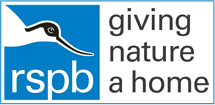British military base on Cyprus - a safe haven for wildlife criminals
Over 800,000 songbirds, such as blackcaps and robins, are estimated to have been illegally killed on a British military base in Cyprus last autumn, where illegal trapping activity remains around its highest ever levels, according to a new report.

New research by the RSPB and BirdLife Cyprus shows that the number of nets used to trap birds remains around record levels on British Territory, with an increase of 183% since the illegal-killing monitoring programme began in 2002.
The songbirds are illegally trapped and killed to provide restaurants with the main ingredient for the local and expensive delicacy of ambelopoulia- a plate of cooked songbirds. Organised crime gangs are driving this illegal activity on a huge scale and it is estimated they earn millions of Euros every year from the songbirds they kill on British territory.

Between August and October 2016 the small British Sovereign Base Area (SBA) police force, supported by specialist surveillance help from RSPB Investigations staff, opened more cases and confiscated more mist nets - long lines of near invisible netting - than ever previously recorded. However, the SBA Administration were largely forced to abandon their most successful tool against this criminal activity- removal of the invasive Australian acacia trees which trappers have planted on MoD land in order to lure the birds in- due to the trappers organising large protests and a dramatic blockade. Whereas the Base authorities had successfully removed 54 acres of acacia in the preceding two years, this autumn they were only able to remove a further 7 acres, leaving around 90 acres of this illegal-killing infrastructure still standing on the British firing range.
Trappers also blatantly and extensively deploy electronic calling devices on the firing range at night in order to lure in birds to their deaths and there are concerns that parts of the British firing range are effectively becoming a no-go area for the committed but significantly outnumbered local police force.
Martin Harper, RSPB Conservation Director, said: “This report sadly highlights that the British base is the number one bird killing hotspot on the whole island of Cyprus. “Many much loved garden bird species are being trapped and killed for huge profit by criminal gangs. The trappers’ brazen prevention of the removal of their criminal infrastructure from MoD land could never be tolerated here in the UK. The UK Government must therefore provide enforcement support to help the Base authorities respond to the trappers and safely remove the remaining 90 acres of acacia so that they cannot be used to kill hundreds of thousands more birds.”
The report estimates that over 1.7 million birds could have been killed within the survey area, which covers both the British base and Cyprus Republic areas, and nearly 2.3 million across the whole of Cyprus due to this extensive bird trapping activity. This industrial scale activity has also been confirmed in a scientific paper, published last year, where Cyprus was identified as one of the worst places for illegal bird killing in the Mediterranean.

Martin Hellicar, Director of BirdLife Cyprus, said: “While our latest findings clearly show that the worst bird killing hotspot in Cyprus remains on MoD land, we cannot ignore the distasteful fact that the restaurants serving trapped birds operate within the Cyprus Republic. Enforcement against these law-breaking restaurants has been limited – at best – in recent years, and the Cypriot authorities must change this. We need a clamp-down on the illegal market supporting this wildlife crime, something the European Commission has called for, repeatedly.“Small-scale trapping of songbirds for human consumption in Cyprus was practiced for many centuries, but it has been illegal on the island for over 40 years, after being outlawed in 1974. Enforcement against restaurants serving ambelopoulia has been almost non-existent in the last few years, yet as the key driver of this illegal activity it is crucial that urgent action is taken by the Cyprus Government as well as by the MoD.
16 March 2017
Share this story













